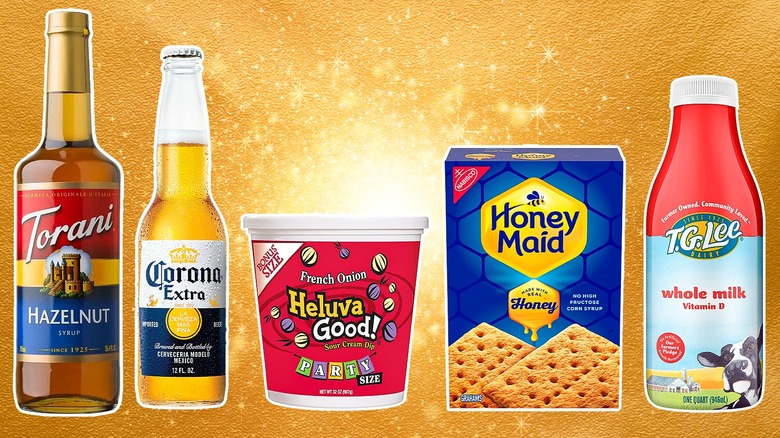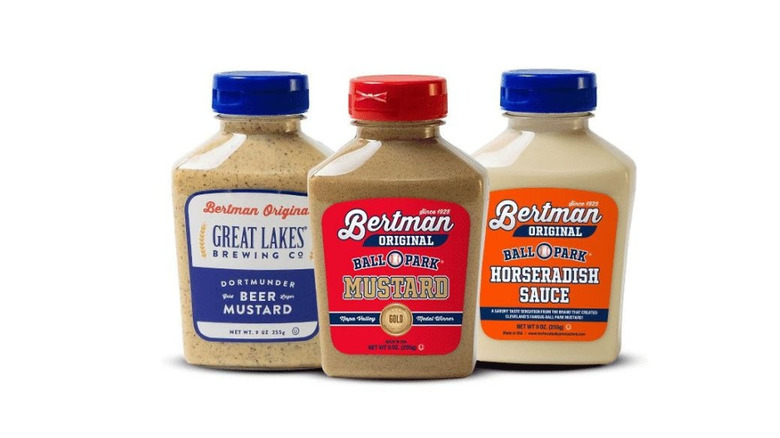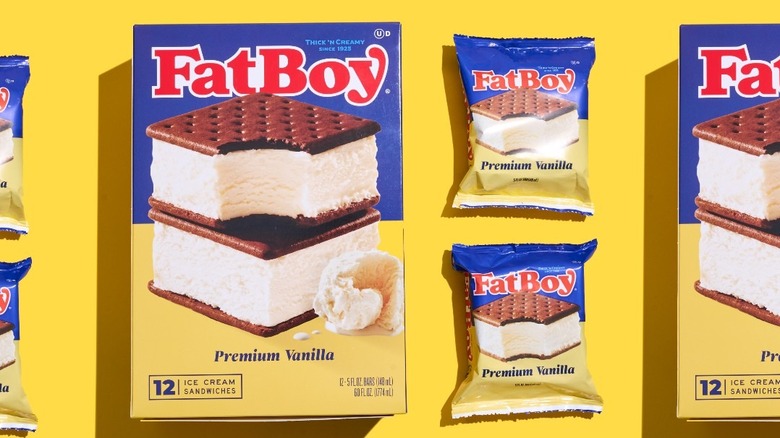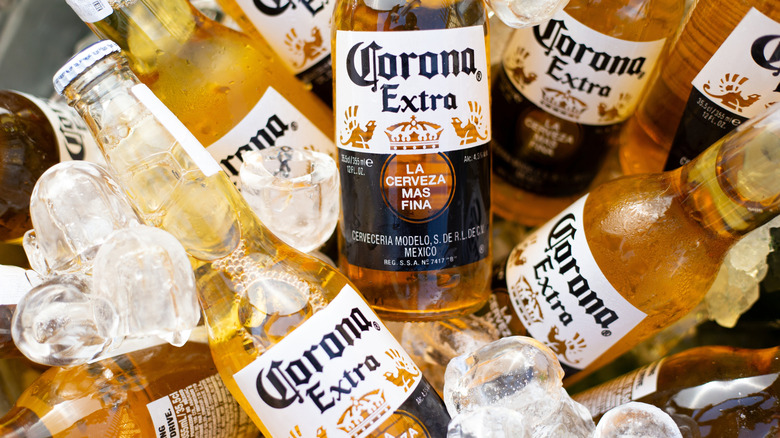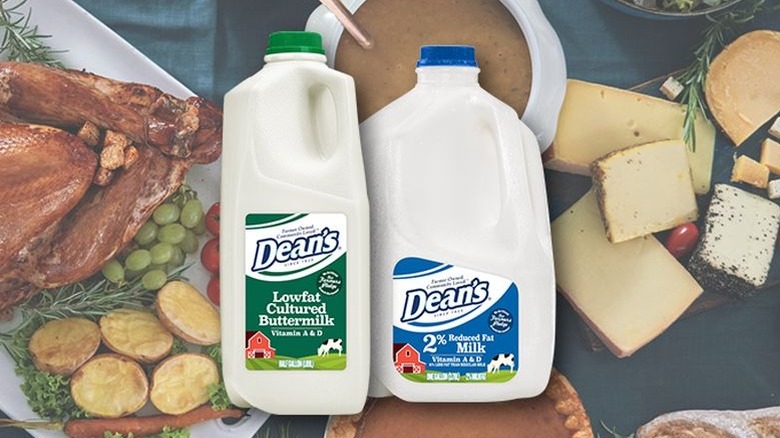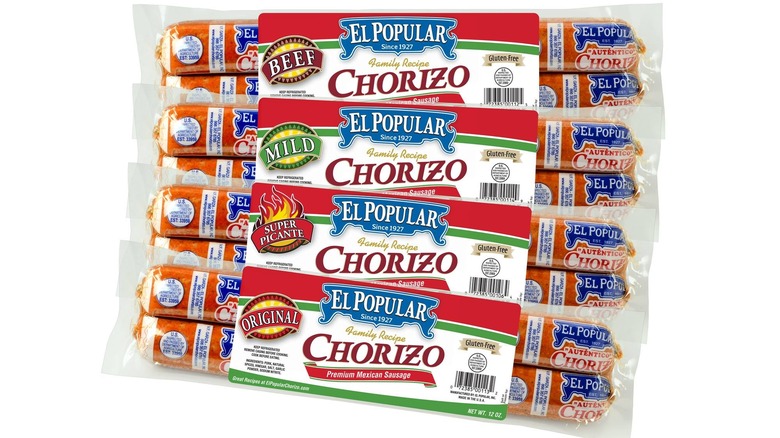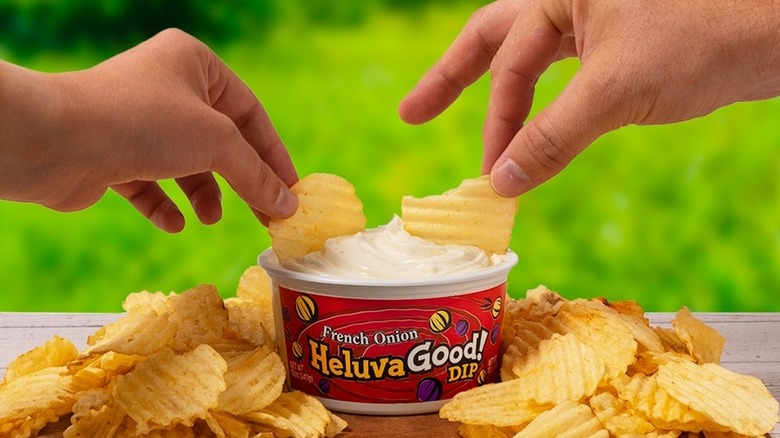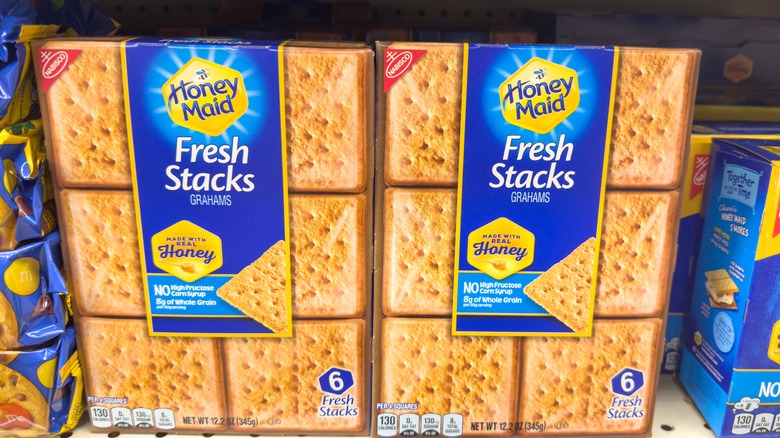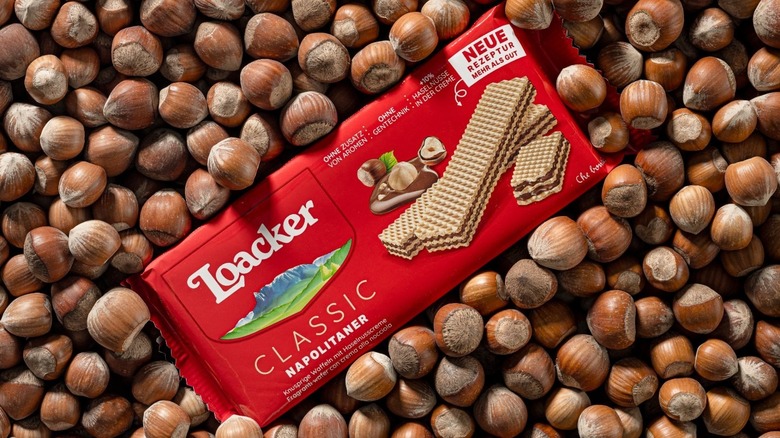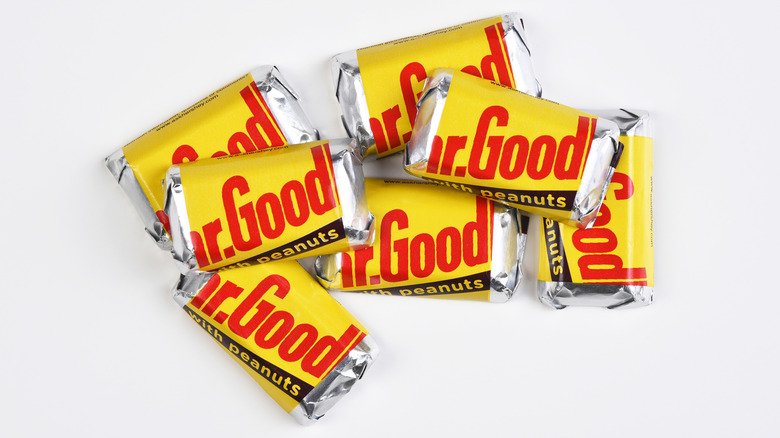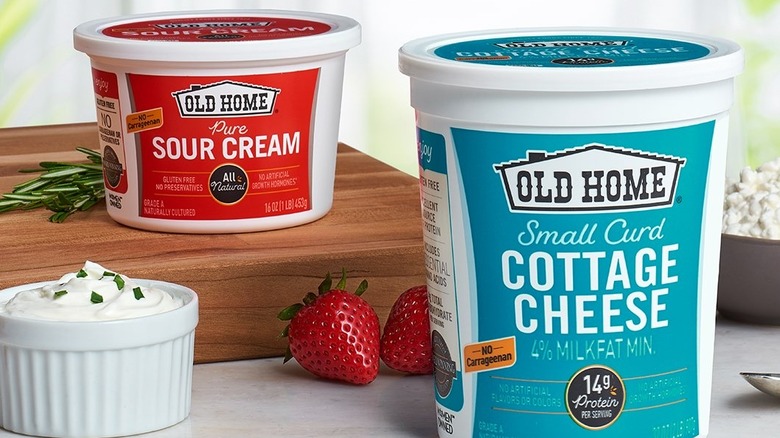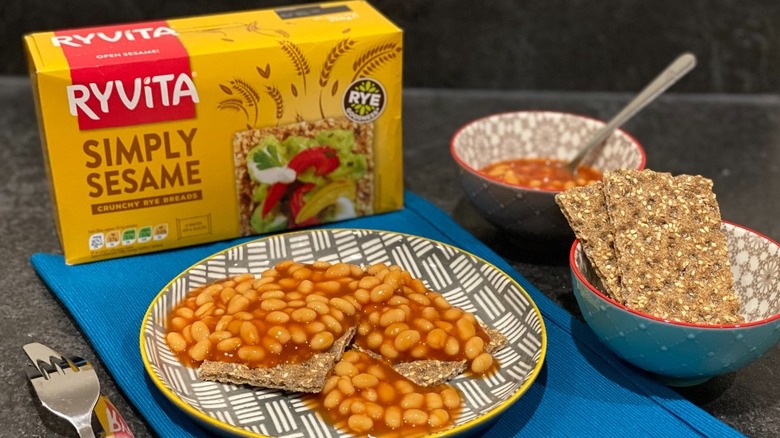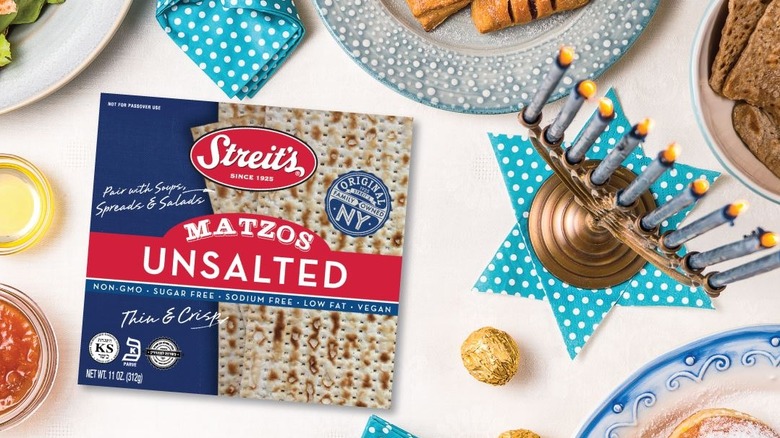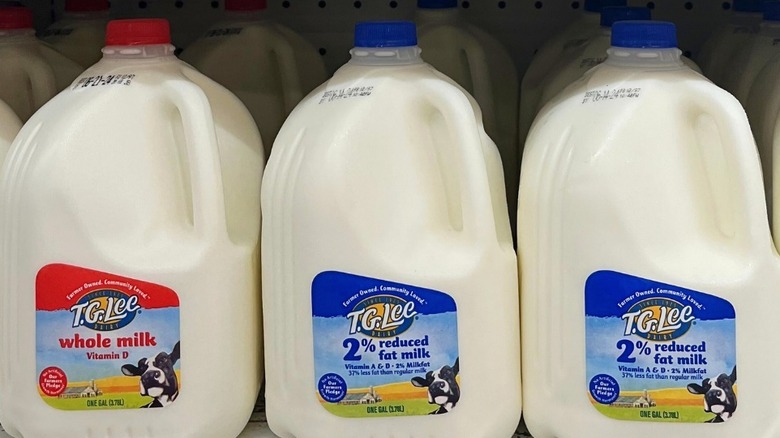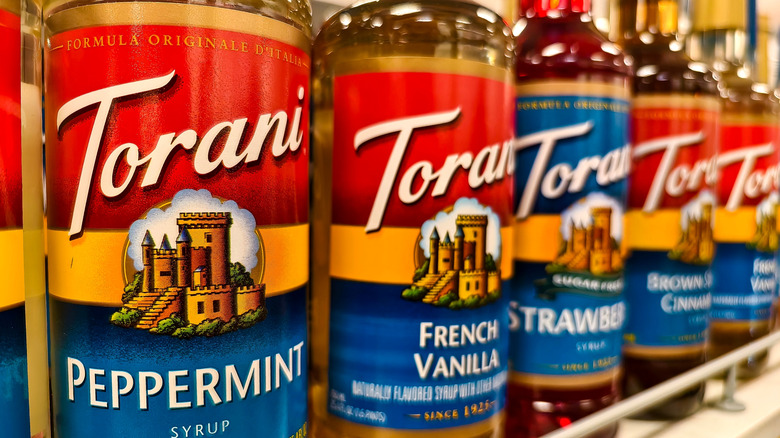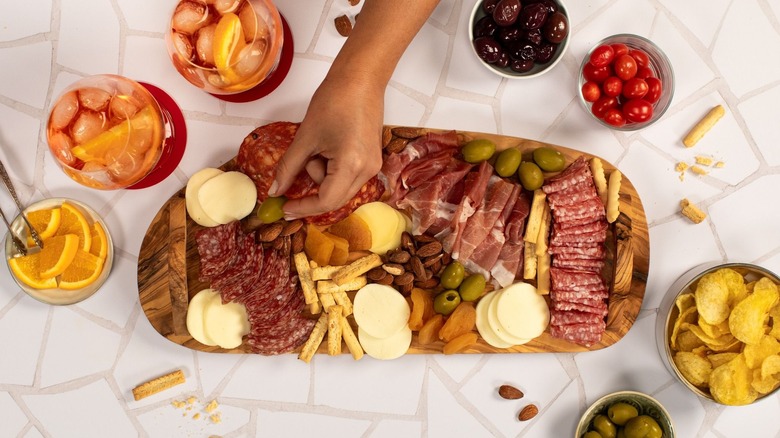Food And Drink Brands Turning 100 In 2025
1925 was quite a year within the Jazz Age. In that singular year, F. Scott Fitzgerald's "The Great Gatsby" hit shelves, Charlie Chaplin's "The Gold Rush" hit the big screen, and the Scopes Trial proved to be filled with monkey business. The world also welcomed the births of Paul Newman, Angela Lansbury, Robert F. Kennedy, Yogi Berra, Malcolm X, Robert Altman, the future Harlem Globetrotters theme song "Sweet Georgia Brown," and the colorful cookware Le Creuset. Flash forward to 2025, and Dick Van Dyke is poised to cross the century mark, and, believe it or not, so are many beloved foods, drinks, and companies that produce one, the other, or both.
Hitting the 100 year mark is a huge accomplishment, so we at The Takeout are popping the Champagne and breaking out the caviar on Doritos to toast those fine foods and drinks and makers for doing so. Our following history lesson will include crackers beloved by the King of England, a lot of creaminess from long-standing dairies, makers of the world's largest mortadellas, flavorful syrups, a proper gentleman of a candy bar, and a whole lot of more deliciousness. Here's to 100 years, and hopefully many hundreds more.
Bertman Original Ball Park Mustard
For Clevelanders who enjoy a good hot dog at a Cleveland Guardians game, there is one condiment that is cherished and squirted on them above all others: Bertman's Original Ball Park Mustard. The mustard was conjured up by its namesake inventor, Polish immigrant Joseph Bertman, blending the talents of distilled vinegar, #1 mustard seed, sugar, salt, and spice. Bertman was a mentor and friend to future culinary titans such as Chef Boirdi (aka Chef Boy-ar-dee) to Vernon Stouffer, and his mustard is enjoyed and praised today by hometown chefs who have spread their wings like Michael Symon.
The Bertman family continued to bottle up Joe's mustard up until 2015, when the Mintz family acquired the brand. The Mintzez have since sought to expand the nationwide reach of the mustard's magic beyond its midwestern roots. The mustard has even partnered up with Great Lakes Brewing to create a sudsy Dortmunder Beer Mustard that often gets stolen at the brewery's restaurant.
In a conversation with The Takeout, Bertman CEO Michael Mintz said, "Seems like everybody in Ohio knows our brand and it's the same formula. From day one, it's [retained] the same great taste, and you know we're proud to be carrying that legacy."
Casper's Ice Cream
Casper Merrill earned a Bachelor of Science degree in Dairy Science from Utah State Agricultural College in 1925. That same year, Merrill put his knowledge to delicious use when he crafted a nutty ice cream sundaes on a stick and sold them during a July 4th celebration. That cool idea turned into a company, Casper's Ice Cream, which mass produced two very popular items — Casco Nut Sundaes, and FatBoy Ice Cream Sandwich. The company later added the non-dairy line Jolly Llama, and premium ice cream sub-brand ChurnBaby.
While Casper passed away in 1999, the company remained in family hands well into the 21st century. In 2022, the company was acquired by MidOcean Partners, who have continued kept things churning, and expanding its sandwiches, pops, and cones place in freezers across America. Today, 500,000 FatBoy ice cream sandwiches are made a day, and 130,000,000 of them are consumed each year. Atta boy FatBoy.
Corona
German brewemaster Adolf H. Schmedtje moved to Mexico to work for Braulio Iriarte Goyeneche and his Cervecería Modelo S.A. brewery, where he came up with Corona lager beer. Corona finally hit U.S. shelves in 1981, and for new consumers it was like discovering Mexican gold. Celebrities like Sean Penn and Jimmy Buffett, who also served as a spokes-drinker, helped to further push it into popular culture. It was on a roll until 1987 when unfounded rumors of the beer being contaminated with urine surfaced.
The beer is still brewed in Mexico to this day, is imported to the U.S by Constellation Brands, and globally to 120 countries by AB InBev. And although the beer became somewhat or a punchline during the COVID-19 pandemic due to its similarity in name to the coronavirus, it didn't stop people from drinking it up.
Dean's Dairy
In 1925, Samuel E. Dean Sr. purchased the Illinois evaporated milk processing facility Pecatonica Marketing Company, and within two years renamed it Dean Evaporated Milk Company, and not long after, the Dean Milk Company. That name stuck around until 1963, when it was renamed the Dean Foods Company.
Dean Foods produced many dairy products, but one of its most famous was its line of dips, which was introduced around 1959 with two flavors — "Bleu Tang" and "French Onion." The line was later and better simply known as Dean's Dip, and was sold off to Ventura Foods in 2005, and today under the ownership of Brynwood Partners.
Over the decades, Dean Foods acquired many dairies and brands, like DairyPure, TruMoo, Land O'Lakes, Country Fresh, Friendly's, and fellow centurion T.G. Lee Dairy to become the largest producer of milk in the U.S. That all came crashing down when it declared bankruptcy in 2019. A year later, Dairy Farmers of America acquired most of Dean Foods' business operations. The name lives on as Dean's Dairy, although on its website, its history has scrubbed any mention of its namesake Samuel E. Dean Sr., its Illinois roots, and although its logo proudly mentioned it's been around "since 1925," it notes 1934 as its start date at a Pennsylvania dairy farm.
El Popular
When Monterrey, Mexico native Vicente F. Garza settled in Chicago, Illinois, he brought a taste of his former home to his new one. In 1925, (although in some earlier accounts and packaging, the start year has been noted 1927), launched a food brand under his name — V.F. Garza. The first product was a chocolate made with cinnamon. Later, products such as chorizo, molé sauce, and queso helped to nourish both Latino and non-Latino communities in America.
Vicente made the company a family affair, with his sons Richard, Vicente, Jesse and Arthur helping to expand, and take it over for him after his death in 1968. His grandson Edward purchased V.F. Garza and Sons in 2001 and renamed the company El Popular. Now in its fourth generation as a family business, El Popular is, according to The Indianapolis Business Journal, "the oldest Latino-owned business in Indiana and one of the oldest in the United States."
Heluva Good!
Perry Messinger was a fine cheesemaker, who started selling his work at A.B. Williams Store in his hometown of Sodus, New York. Legend has it that a traveling salesman was so taken with the taste of washed curd cheese, proclaiming, "That's a hell of a good cheese!" That phrase became the inspiration for a new company name — Heluva Good!
Cheese remained the company's focus until the 1960s, when it began manufacturing its soon to be signature item — French onion dip. More savory and creamy flavors followed, and, after the brand was acquired in 2004 by HP Hood LLC, it has since expanded its presence in both the United States and Canada.
In a statement provided to The Takeout, Chris Ross, Senior Vice President of Marketing and R&D at HP Hood LLC said, "This milestone reflects our dedication to quality, innovation and delicious taste. We're committed to keeping the fun in food and turning anytime into a Heluva Good! time." That included pairing with Harpoon Brewery to create a limited batch of French Onion Amber Ale. Cheers.
Honey Maid
Graham crackers are a simple treat, but were originally introduced into this world by a minister who was hoping to repress the sexual desires of his followers. Pacific Coast Biscuit introduced its own take in 1925, where the sweetness was led by honey, and not molasses, and was named to emphasize that key ingredient — Honeymaid Grahams. Nabisco acquired the parent company five years later, and oversaw two name further changes: Sugar Honey Maid Graham crackers in 1965, and to its current one in 1976, Honey Maid Grahams crackers.
These crackers are so well known that for a period of time, Nabisco didn't even bother to advertise them on television. Honey Maid crackers work magic for various seasons, as perfect bookends for s'mores in summer, crumbles for fall pie crusts, and building blocks for winter graham cracker houses.
In a statement provided to The Takeout, Alison Carbone, Sr. Director at current owner Mondelēz, noted, "A fixture in American culture and pantries, Honey Maid Grahams have been delivering warm memories to families for 100 years." She added, "Mondelēz International is proud to continue a century-old tradition of sharing Honey Maid Grahams generation after generation."
Loacker
Alfons Loacker went from a boy who worked at an Italian pastry shop to owning it by 1925. It was there he developed the Bolzano wafer, named after the town where he and the shop resided. Over time, his wafers became a beloved regional treat, and continued to be produced by the family by several generations thereafter. In the 1970s, thanks to stay-fresh packaging and a larger production facility far above sea level, Loacker's products started to find new mouths to feed across the world.
For its centennial, Loacker is partnering with celebrity chef Giada De Laurentiis to help celebrate throughout the entire year. In a press release, TJ Rooney, president of Loacker USA said, "For 100 years, Loacker's core values of premium ingredients, quality and tradition haven't changed. We believe in celebrating all of life's moments through intentional indulgence, whether that be our 100th anniversary or simply enjoying a delicious treat at home."
Mr. Goodbar
Hershey's first milk chocolate bar was sold in 1900, and a quarter-of-a-century later, one with Spanish peanuts fried in fat rolled into stores. Hershey's chemist Samuel Hinkle once recalled how its prefixed-name came to be, in an oral history interview with Hershey Archives, "Someone said, 'That's a good bar.' And his [Mr. Hershey's] hearing being a little bad, he thought they said, Mr. Goodbar. So he named it Mr. Goodbar."
Famously packaged in a yellow rapper with red lettering, Mr. Goodbar was at one time marketed as a "Tasty Lunch," and was one of the initial members of the Miniatures line that launched in 1939. Mr. Goodbar's good name has been bandied about in popular culture, serving as part the title of Judith Rossner's 1975 novel, "Looking for Mr. Goodbar," which was turned into a Diane Keaton film two years later. It's name has also been used lyrically by the likes of Frank Zappa, LL Cool J, and "Weird Al" Yankovich, seen in scenes of "Seinfeld," "Stranger Things," and "Yellowjackets," and mentioned by beloved characters on "The Simpsons," "Moonlighting," and "Blazing Saddles."
Old Home
Minnesotan P.A. Hanson got into the dairy business starting in 1912, and 13 years later, his Old Home Creameries was incorporated. The creamery started producing cottage cheese commercially, which was a first for the Watertown and Minneapolis areas. In 1956, Hanson and his four sons purchased the Minnesota Milk Company, and a year later, were the first to introduce yogurt to the Twin Cities. In 1960, all these combined companies became one and renamed Old Home Foods, Inc.
P.A. Hanson passed away in 1979, but Old Home has remained in family hands, now being stewarded by a fourth generation — his great-granddaughters, the Hanson Sisters. Old Home Foods still produces cottage cheese, various forms of yogurt, including Greek, sour cream, dips, and even peanut butter. As part of the company's celebration for hitting the century mark, Old Home is sharing 100 different ways to use cottage cheese on its social media channels throughout the year.
Ryvita
John Edwin Garratt was so impressed with the rye crispbread crackers made in Sweden that he set up a company to import them into Great Britain. Garratt's Ryvita Company started trading on April 4, 1925, and seven years later, set up a bakery in Birmingham to produce crispbread. The factory was destroyed during World War II, but Ryvita bounced back in the ensuing decades, expanding its offerings to include Fruit Crunch, Crackerbread, Thins, Snack It Thins, and chocolatey Crispy Snacks.
Long seen as a diet-friendly food, Ryvita looked to shake that image in 2022 with a new marketing campaign. Ryvita senior brand manager Nikki Wilkinson told Marketing Beat, "We want to showcase how versatile and balanced our products are and how a fully loaded Ryvita is healthy, natural, delicious and perfect for many occasions." Right before Ryvita turned 100, the company was bestowed the honor of being granted a Royal Warrant of Appointment to The King of England, which officially signifies that he is a fan of the brand.
Streit's
Aron Streit immigrated from Europe to America in the 1890s, and in 1916 opened his first matzo factory where it was made by hand. Nine years later, Streit and one of his sons opened his namesake, modern bakery on Rivington Street, in the heart of Manhattan's Lower East Side. Streit's was one of the last remaining matzo factories to reside there, until it packed up for a state-of-the-art factory in Orangeburg, New York, in 2016. The final year at the old factory was chronicled in an excellent documentary by Michael Levine called "Streit's: Matzo and the American Dream."
Streit's remains in the hands of the same family to this day, and they have no plans to ever sell it. In 2025, the company will release special commemorative 100 year anniversary boxes for its Passover matzo. In a statement provided to The Takeout, Streit's said, "From our founding to today, we've seen plenty of change. But through the changing decades, one thing remains the same: Our commitment to quality and service. Here's to the next 100 years of delicious kosher food!"
T.G. Lee Dairy
Thomas Gilbert Lee started a dairy in Orlando, in 1925, thanks to the 20 acres of land his father gave him, the family cow named Hopper Lee, and a bank note to buy another one. Lee and his wife Elizabeth grew the dairy themselves, sometimes working up to 20 hours a day to milk the cows, bottle it, and deliver it to their customers. Since his name was too long to fit on the bottle, his initials "T.G." were used, which eventually gave the company its current name — T.G. Lee Dairy.
Long before Walt Disney World was the big attraction in Orlando, T.G. Lee Dairy lured people to his farm to ogle at its high-tech milking parlor in the 1930s. The dairy celebrated its 50th anniversary at Walt Disney World, and under its current owners, Dairy Farmers of America, May 3, 2025 has been set aside to celebrate the centennial with local residents. It is hosting a 5K called the Milk Run, which will culminate with an afterparty that includes free milk and ice cream.
Torani
At bars, coffee and tea houses, and people's homes, bottles of Torani syrup are common sights to add a little or a lot of flavor to one's favorite beverage. It all began in 1925, when Rinaldo and Ezilda Torre started handcrafting syrups in the San Francisco area, with recipes by the way of the old country — Lucca, Italy. The first flavors were Anisette, Grenadine, Lemon, Orgeat, and Tamarindo. Today, the company has over 150 flavored syrups to squirt, including the classic vanilla, which was used to create the first flavored latte in 1982.
To mark 100 years of flavor, Torani even released one to match as its "Flavor of the Century" — Torani Diamond Syrup, with 100% of its sales donated to nonprofits across the United States. In a statement provided to The Takeout, Melanie Dulbecco, CEO at Torani noted, "What started a small wife-and-husband business in 1925 has grown into a global leader in flavor with 30 consecutive years of double-digit growth. With a relentless drive for flavor innovation, commitment to creating more opportunities within our company and our communities, and $1 billion in annual revenue on the horizon in just a few years, it feels like we're just getting started."
Veroni
Brothers Fiorentino, Francesco, Paolo, Adolfo and Ugo Veroni ran a grocery shop in the Emilia-Romagna region of Italy, and in 1925 expanded the family's salami business by founding the company F.ll Veroni. Nine years later, Veroni introduced its first giant mortadella, a trademark of the company. It has gone on to make mortadellas that have weighed in at 176, 220, 450, and 770 pounds, and a world record setting one that notched a the hefty number of 5,700 pounds.
In 2007, the fourth generation of the Veroni family assumed leadership, and helped to push its cured and cooked meat products into foreign markets. That includes the U.S. market, where in 2016 it became the first company to import 100% made in Italy salami into the country. Seven years later, SugarCreek Packing Co. acquired Veroni, to strengthen its quality and distribution both in America and internationally. The Veronis are still a part of the company, with current president Stefano Veroni noting, "We do not want to lose the family identity, which has allowed us to grow."
